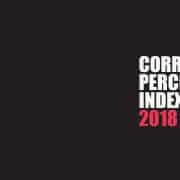|
Getting your Trinity Audio player ready...
|
From time to time in the South African media, articles appear that talk about the various so-called golden visa programmes offered by several EU countries. This is essentially EU residency or citizenship and a passport in return for money – lots of it. A substantial investment in the country of choice will secure these benefits, and the offer is said to be popular with South Africans.
However, this is not only a lucrative means of bringing in billions of euros in foreign investment. The programme itself may also serve as an easy conduit for money-laundering, Transparency International (TI) reports. A new report, published by the global anti-corruption organisation, with Global Witness, analyses the corruption risks posed by the sale of citizenship and residency and how these schemes threaten the integrity of the EU.
“Poor accountability and limited transparency can give rise to corruption within countries operating golden visa programmes, with groups of individuals bound to benefit from the schemes to the potential detriment of the local population,” the report cautions.
Read TI’s discussion on the topic:
The citizenship- and residency-by investment programmes, commonly known as golden visas, offered by some EU Member States have repeatedly sparked controversy. Applicants and grantees associated with dubious sources of wealth have made headlines in various countries, and the opacity which characterises many of the schemes has raised concerns over risks of money-laundering and to the security of the EU and its Member States.
A new report by Transparency International and Global Witness analyses these schemes, finding that over the past decade the EU has welcomed more than 6 000 new citizens and nearly 100 000 new residents. Spain, Hungary, Latvia, Portugal and the UK have granted the highest number of golden visas to investors and their families, ahead of Greece, Cyprus and Malta.
Such programmes are big business. Around €25-billion in foreign direct investment has flowed into the EU through these schemes over the last 10 years. The amount of money one person might invest to be granted a passport can reach €10-million in Austria.
With huge volumes of money involved, checks for money laundering and corrupt and illegal origins of the investment have to be especially rigorous, but that doesn’t appear to be the case. In fact, as the report highlights, scandals are rarely far from these schemes.
Between 2008 and 2015, the UK Tier 1 Investment Visa suffered from a ‘blind faith’ period during which 3 ,000 high net worth people entered the UK, bringing with them at least £3.15-billion (€3.6-billion) of questionable legitimacy. The scheme has now been reformed, and visas granted during this time are being reviewed.
Malta’s scheme has awarded passports to three Russian investors, who appear on the US ‘Kremlin list’ of wealthy businesspersons believed to be close to president Vladimir Putin and who could have been enriched through corruption. Today, Transparency International Russia has published further names of new Maltese citizens from Russia with questionable backgrounds or finances. In September, police in Finland raided a real-estate agency at the centre of a suspected €10-million money-laundering operation, controlled by a Russian businessperson who reportedly purchased Maltese citizenship.
Two Ukrainian businesspersons – Gennady Bogolyubov and Igor Kolomoisky – were granted citizenship of Cyprus, before allegations emerged that they had extracted €4.8-billion from a bank they founded together in Ukraine.
Authorities claim to follow best due diligence practices during the screening of applicants. Our report finds plenty of reasons to question this claim.
But even if it is true, what matters even more is how countries assess their due diligence findings to make decisions – in other words, the size of their risk appetite.
Together with Global Witness, we are calling on the EU to take action to set common standards and mechanisms for reducing the corruption risk posed by golden visas programmes.
At the national level, governments running these schemes need to be sure that the individuals they welcome into their countries and, by extension, the EU, are clean – and that their money is, as well. That means proper oversight to make sure the appeal of large profits doesn’t create an unhealthy appetite for taking chances.








